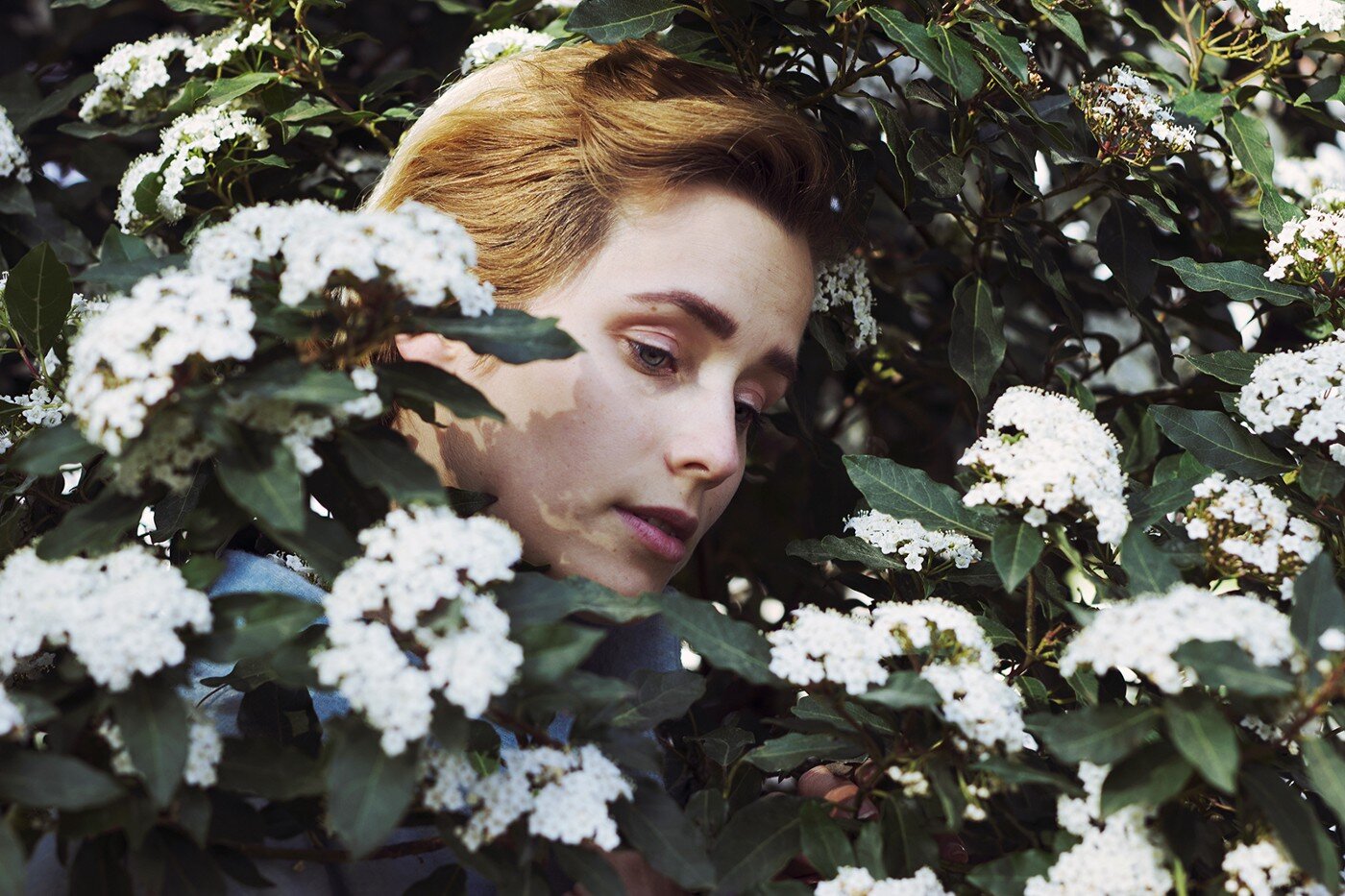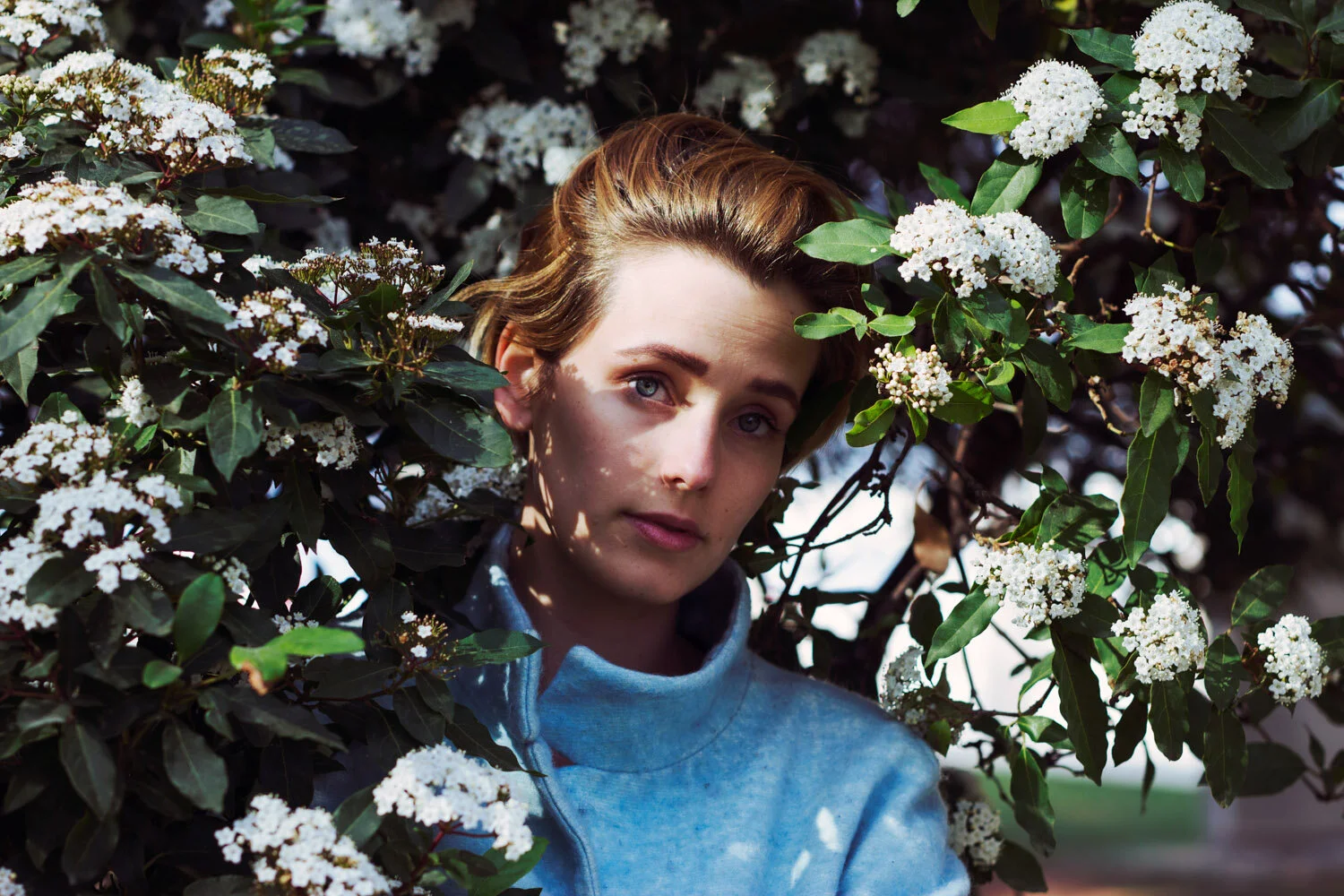Creative Mind: Laura Zalenga
Back in 2014 I had the chance to interview Laura, a Munich-based photographer, for my final thesis that tackled the question of beauty. I loved how Laura portrayed limbs in weird positions in her self-portraits and was, being a self-portrait photographer myself, intrigued to find out what self-portraiture meant for her and if it had altered her body image and self-esteem. I finally met her this year and we talked about this interview that I had never published online before. Although her work has slowly shifted in another direction, I believe there is still wisdom in her words.
You’re much involved in self-portraiture and many of your poses are ballet
influenced. What is it about ballet that — literally and metaphorically — moves you?
I love that ballet is such a silent, subtile way to express emotions. I have never been a dancer but I believe that dancing is as therapeutic as taking self-portraits. Being able to tell a story on an emotional level — not on a direct, verbal level — is something that interests me a lot. I want my photographs to tell something, to move the viewer and therefore most often the photos are build around an expressive pose of the portrayed person.
There are also surrealist elements in your works (twisted bodies, hidden faces, leg multiplications). Where do you think this urge to create surrealist pieces comes from?
I believe that is my celebration of today’s overworking possibilities. Post-processing opens up a whole new world where you can create everything.
You can create all the things that so far have only been possible in your imagination.
The ancient Romans had a saying: ‘’Mens sana in corpore sano’’ (Healthy mind in a healthy body). It seems to me that your surrealist moments are a (probably unconscious) way to break free from the body as such, to test its limitations and expand them. How do you take care of your body and mind (if we’ll divide them like that)?
I don’t take care of my body or my mind actively. I believe my friends and my
photography are my therapist and keep me happy and sane. My body suffers a little bit under the fact that I would rather spend two hours editing a new photo than cooking a healthy meal or going for a jog. But doing all these self-portraits in trees, with dancing, jumping and running around searching for locations is at least a little bit of a workout.
I find your work quite introspective, as opposed to the photos we see in most ads and magazines that are photoshopped solely with the purpose of ‘beautification’ and making profit, therefore rendering the model subordinate to the hierarchy of society’s accepted beauty conventions. How much do you think ‘the media’ influences our way of seeing and thinking?
Are social networks a platform to express ourselves freely, or just another tool of going with the flow?
As much as I would love to say that you can hide from the influence of the media, I myself am guilty of trying to fulfill some of society’s conventions. Although I know very well how easy it is to manipulate a photo in pos-processing and that most of the photos in the media are highly overworked I still dream of most of these beauty ideals myself. We are surrounded by photos that imply how we should look in order to be loved or accepted.
I believe you have to be very self-confident to live against societies conventions.
Almost everywhere those who create beautiful but ordinary work hear far more praise than those who experiment and create things that are highly different from the norm. And I believe it’s just human to seek for appreciation.
But it’s maybe also because it’s so much easier to go with the flow. You don’t have to define your own thoughts or try to create something entirely new.
I always try to rather express myself freely but sometimes I don’t even notice that I just went with the flow. It takes strength to swim against the tide but you can find beautiful things when everybody else is looking the other direction.
Your photos evoke in me personally a sense of loneliness and nostalgia. I
directly link this to why I find them so appealing. What are the qualities you’re looking for in your models?
Actually the words loneliness and nostalgia are one of my favorites. It’s exactly what I want to express with many of my photographs and therefore it’s also what I am looking for when I search for new models. People who look fragile, very natural and a little bit different from the „barbie ideal“. You will not find people with piercings, tattoos, dyed hair or long nails in my conceptual portraits. I want the characters to be rather timeless and universal so that many people can relate to them. And yes, models who are dancers on top of that are my favorite.
What does the term ‘beauty’ mean to you?
In my private life beauty is something that lives deep inside of us and not on the surface. Humor, unselfishness, moral courage, honesty… that makes people truly beautiful. Of course there is always a visual level that makes the first impression but it’s nothing compared to the face somebody wears inside.
For my photography it’s not that easy. You will hardly see if somebody is unselfish in a portrait. So for my photos I search for people I find beautiful outside and that is as stated above naturalness and looking a bit different from the norm.
Many people I’ve talked to said that they don’t feel self-conscious enough to
present themselves to the public (via a blog, photographic work, etc.). From my personal experience, self-portraiture has made me more self-assured. How does yours affect you?
I believe my self-portraiture rather made me more self-aware than more self-confident. Self-portraiture is often seen as something bad because people put it on a level with conceit. Maybe sometimes it is but most of the people I know take self-portraits because as a result they can understand themselves better and I think understanding and knowing yourself is the only way to become happy and maybe also more self-confident.


